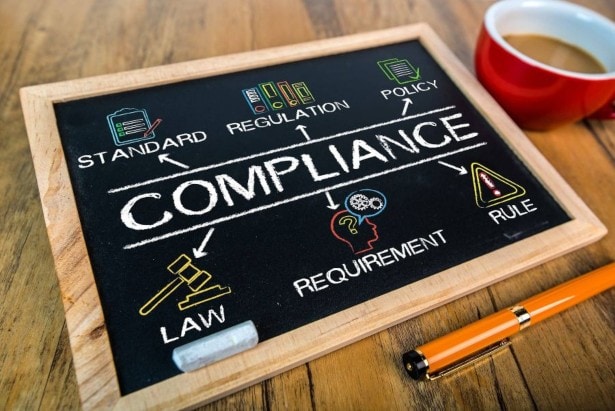Business Compliance
What Areas Can We Assist With?
As a business owner, there are several strict regulations and rules that all business owners are required to comply with under the law.
This include compliance in relation to:
- Australian Consumer Law;
- Australian standards;
- Environmental legislation;
- Work Health and Safety laws;
- Competition and consumer laws; and
- Fair work requirements
Australian Consumer Law
The Australian Consumer Law (“ACL”) applies to all goods or services within Australia and overrides any businesses’ own store policies in relation to refunds and exchanges of goods and services provided.
The following table lists out the guarantees a business owner makes in relation to the goods and/or services they provide:
Guarantees regarding GOODS
- are of acceptable quality;
- match descriptions made by a salesperson, packaging, labels, in promotions or advertising;
- match demonstration models or samples;
- are fit for the intended purpose;
- come with full title and ownership;
- don’t come with hidden debts or extra charges;
- meet any extra promises about performance, condition and quality; and
- have spare parts and repair facilities available for a reasonable time after purchase, unless stated otherwise.
Guarantees regarding SERVICES
- provided with acceptable care and skill or technical knowledge and take all necessary steps to avoid loss and damage;
- fit for the purpose and/or give the intended results; and
- delivered within a reasonable time when there is no agreed end date.
The ACL lists out the entitlements of consumers who receive faulty goods or services to receive a repair, replacement or refund. Depending on the circumstances, a consumer may also be entitled to receive compensation for damages and loss.
The remedy a consumer may seek or be entitled to is dependent on whether the issue is considered a minor or major issue. If the issue is minor, a business is entitled to repair or replace the item or service. If the issue is found to be a major issue, a business may be required to refund the consumer.

Australian Standards
The Australian Standards outline the specifications and design procedures to ensure that products and services consistently perform reliably, safely and how they’re intended to perform.
- Mandatory standards; and
- Voluntary standards
Mandatory standards
Mandatory standards are regulated by the Australian Competition and Consumer Commission (“ACCC”) and cover standards in relation to safety (such as performance, composition, contents, design, construction, finish, packaging, and methods of manufacture or processing) and information (such as labelling, clear instructions and warnings about misuse).
There is a comprehensive list of what types of products are covered under mandatory standards. A full list can be found on the Product Safety Australia website, here.
Voluntary standards
Voluntary standards are just that – voluntary. Whilst they are not required by law like mandatory standards, they represent best practice for a business.
Environmental Legislation
All business owners must be aware of the requirements under the Protection of the Environment Operations Act 1997 (NSW) in relation to compliance regarding water, land, air, noise pollution and waste management.
Compliance under environmental legislation includes:
- Everyone in the business understanding and complying (including owners, managers, operators, supervisors, contractors and subcontractors);
- Developing an environmental management plan (such as training, self-assessment completions and independent audits of plans and operations for the business)
Work Health and Safety laws
Employers and owners of a business are responsible for providing to all workers, contractors, volunteers and people who come in contact with the business:
- Work Health and Safety (“WHS”) training and information;
- First aid;
- Emergency plans;
- Personal protective equipment; and
- A safe work environment
Employers and owners must also take management steps to ensure any risks are considered and dealt with (for example, making everyone aware of potential hazards, managing risks arising from hazardous manual tasks, chemicals and noise) and recording all workplace incidents in an injuries register.
More information can be found on the SafeWork NSW website.
Competition and Consumer laws
All business owners and operators must be familiar with their rights and obligations under the Competition and Consumer Act 2010 (“CCA”).
The CCA covers business-related topics such as advertising and price-setting, as well as how businesses should lawfully deal with its suppliers, competitors and customers.
The Australian Competition and Consumer Commission (“ACCC”) is the relevant government agency that deals with compliance with the CCA and has the power to take legal action against business owners and operators who have breached their obligations under the CCA.
Fair Work requirements
Employers and business owners have strict obligations they must comply with under the Fair Work Act 2009 (Cth), which is monitored by the Fair Work Ombudsman. The Fair Work Act covers everything in replace to the workplace, including pay, leave, employee entitlements, awards and agreements.
The legal and regulatory responsibilities of an employer or business owner are covered under:
- The Fair Work Act;
- The National Employment Standards; and
- Awards or enterprise agreements (if applicable)
- Personal protective equipment; and
Looking For Lawyers Who Make A Positive Difference?
As lawyers, we sincerely uphold our responsibility of positively changing the community. We are passionate about making a positive difference and are inspired to work with like-minded people in making our community a better place.
